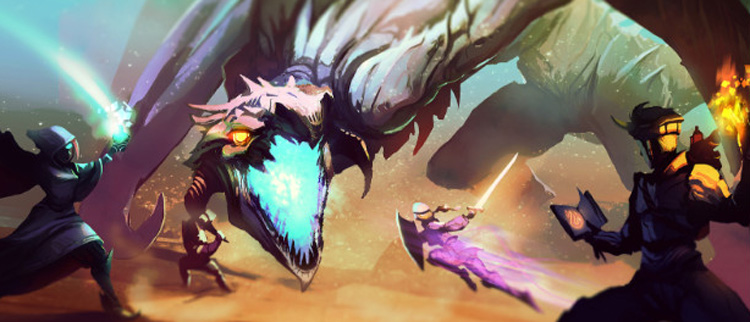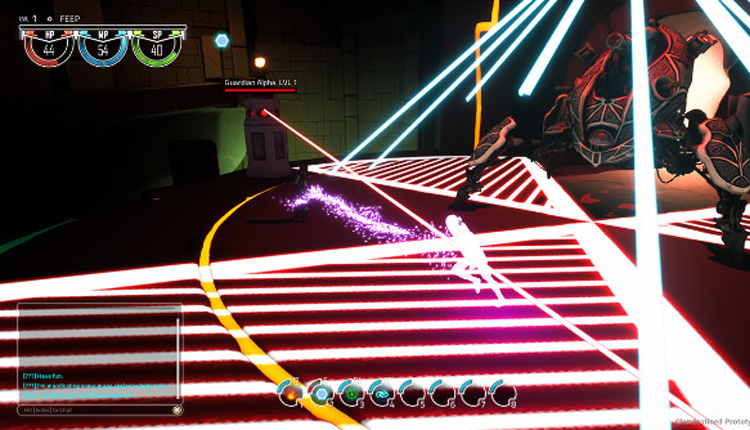Lucid Sight’s Randy Saaf on finding the sweetspot for blockchain’s frontier games

From frontier gaming to the forefront of innovation
With every new generation of games, the revolution comes before evolution.
Lucid Sight CEO Randy Saaf describes this hard transition from the early “frontier games” to the later iterations that gain wider acceptance.
“We dig the concept of frontier gaming: Building games for new platforms,” he explains.
Game development is much more of an art. It's like making a movie, and just because you have a great idea doesn't mean you can make a good movie.
“When I was growing up the frontier gaming was the Commodore 64.”
Saaf goes on to suggest with console and now mobile gaming becoming mainstream, the lure of the new frontier of blockchain gaming is what’s attracted Lucid Sight.
“Blockchain gaming is introducing peer-to-peer money, immutable ownership, changing a lot of dynamics in the process,” he says.
Gaming: the balance of blockchain
Having previous experience working on major game titles, LA-based Lucid Sight understands that a truly successful game uses features like blockchain as one part of the whole.
“For a game, you need designers, coders and artists. And people to balance the economy,” he says.
“That’s why our approach has been about making a really good game with some blockchain in it, as opposed to a super blockchain-heavy game that is super crappy.”
In this way, Saaf says given the current maturity of blockchain technology, developers need to choose between a compelling game with blockchain as a feature or have their title suffer.
It’s with this perspective that Lucid Sight’s first thirdparty published game Cryptic Conjure employs this holistic approach .

“Cryptic Conjure would stand on its own as a good fantasy RPG,” Saaf states.
“Even without the blockchain stuff, it’s the first game developed in Unreal 4 with blockchain, meaning that it has all the features of a triple-A game, it’s targetting the PC gaming audience.”
Cryptic Conjure – Sharing is caring*
The game also contain features that combine gaming history, and blockchain.
“So the creator of the game (Jason Wishnov) grew up in an era where there was no internet for the game to be explained, so you’d play an RPG back in the 80s,” Saaf continues.
“You could talk to your friends or buy a strategy guide from a store, but there was no internet for you to get a video walkthrough of a dungeon.”

In this age of highly interconnected people and even more connected games, the secrecy of game items or features were lost in the evolution, in Cryptic Conjure, the game intends to bring this back.
In a previous interview with Wishnov, this was referred to like the games spell degeneration mechanic, teaching players to be careful with who they share their spell recipes with. Saaf details how this works in-game.
“If you craft a spell and give it to somebody else, every time someone else uses it and gets that spell, that spell decreases by 10% power,” he continues.
“So it teaches us that you should share these spells, it’s a multiplayer game after all, and there’s a certain advantage to that, but if one of those spells gets out in the wild, it can hit 0%, and that’s a mechanic that’s blockchain secured.”
This mechanic provides players with a compelling choice of whether they can trust their teammates to keep their rare spells secret or see it completely depreciate in power and value. Saaf believes that these sorts of mechanics will resonate with players, and make blockchain more attractive for mainstream gaming.
“It’s a prisoners dilemma to this; there’s a benefit to sharing but what if they screw me over? I’m pretty confident that it’s going to be on consoles in the future.”
Lucid Sight – between blockchain and triple-A

Developers face significant challenges in finding ways to compel their would-be players to play their games, while also ensuring an effective use for blockchain, and the solution, in Saaf’s mind, is two-pronged:
“I think for blockchain games to become mainstream, it has to end up with those two things: quality and affinity.
“We’re pushing the quality and brands with affinity a la Major league Baseball.”
MLB Crypto Baseball manages to tick both of these boxes in the same way as the studio’s other games, like Cryptic Conjure by being a brand people can immediately identify, while also providing the quality of a game that utilizes blockchain where it’s required instead of centering the game completely around it.
Find out more about Lucid Sight, Cryptic Conjure, and MLB Crypto Baseball.
And continue the discussion in our Telegram group and don’t forget to follow BlockchainGamer.biz on Twitter, Facebook, and YouTube.

